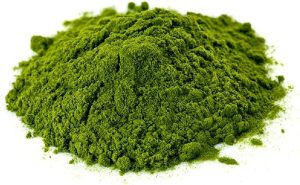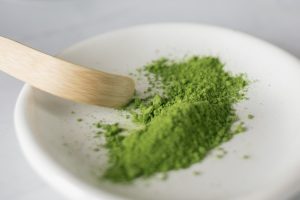
- Overview of Papain from Papaya
- Brief History of Papain from Papaya
- Functions of Papain from Papaya
- Recommended Daily Intake (RDI), Recommended Dietary Allowance (RDA), Adequate Intake (AI), or Reference Nutrient Intake (RNI) for Papain from Papaya
- Deficiency of Papain from Papaya
- Food Sources of Papain from Papaya and Where to Get It From
- Papain from Papaya and Its Interaction with Other Medications
- Websites and Articles to Delve into the Benefits of Papain from Papaya
- Disclaimer
Overview of Papain from Papaya
Papain, derived from the latex of the papaya fruit (Carica papaya), is a proteolytic enzyme with diverse applications. Known for its protein-digesting properties, papain is extensively used as a meat tenderizer in the food industry and aids in the brewing process. Comprising thiol groups, papain is extracted from unripe papaya fruits, stems, and leaves.
Beyond culinary uses, it finds applications in pharmaceuticals, contributing to digestive enzyme supplements and wound care products. Believed to possess anti-inflammatory and antioxidant properties, papain is also explored in traditional medicine. As a digestive aid, it assists in protein breakdown in the digestive tract.
However, individuals with latex allergies should exercise caution, and consulting with healthcare professionals is advisable before incorporating papain into health or skincare regimens.
Brief History of Papain from Papaya
Papain, derived from the latex of the papaya fruit (Carica papaya), has a rich history dating back centuries. Here’s a brief overview:
- Ancient Use:
- Papaya, native to Central America, was cultivated by indigenous populations for its nutritional and medicinal properties. The latex, containing papain, was traditionally used to tenderize meat and treat various ailments.
- Colonial Introduction:
- During the colonial era, European explorers and traders encountered papaya in the Americas. The potential uses of papain became known, leading to increased interest in the enzyme.
- 19th Century Recognition:
- In the 19th century, papain gained recognition in Europe and the United States. It was used in the meat industry as a natural meat tenderizer.
- World War II and Industrial Applications:
- Papain’s significance grew during World War II when it was used to tenderize tough meat rations. Post-war, its applications expanded to the textile, brewing, and pharmaceutical industries.
- Modern Applications:
- In the latter half of the 20th century and into the 21st century, papain found widespread use in the production of digestive enzyme supplements, wound care products, and various industrial processes.
- Scientific Exploration:
- Ongoing scientific research continues to explore the enzymatic properties of papain, leading to its inclusion in a range of products beyond traditional uses.
Today, papain remains a valuable enzyme with applications in food processing, pharmaceuticals, and more. Its historical roots in traditional medicine have paved the way for diverse uses, making it a globally recognized and utilized substance.
We have created a historical timeline in a table format for the brief history of papain from papaya:
| Time Period | Milestone |
| Ancient Era | Indigenous populations in Central America use papaya and its latex for various purposes. |
| Colonial Era | European explorers encounter papaya in the Americas; interest in papain begins. |
| 19th Century | Papain gains recognition in Europe and the United States; used as a meat tenderizer. |
| World War II | Papain used to tenderize tough meat rations during the war. |
| Post-War Industrial Era | Papain’s applications expand to the textile, brewing, and pharmaceutical industries. |
| 20th Century Onward | Papain becomes a key ingredient in digestive enzyme supplements and finds diverse applications. |
| Ongoing | Scientific research continues to explore papain’s enzymatic properties, leading to its inclusion in various products. |
Functions of Papain from Papaya
Papain from papaya serves various functions due to its proteolytic nature and enzymatic properties. Here are some key functions:
- Protein Digestion:
- Papain is a proteolytic enzyme that breaks down proteins into smaller peptides and amino acids. It aids in the digestion of dietary proteins in the stomach.
- Meat Tenderizer:
- Widely used in the culinary industry, papain acts as a natural meat tenderizer. It helps break down collagen and other tough proteins in meat, making it softer and more palatable.
- Brewing Industry:
- In brewing, papain is employed to clarify beer by breaking down proteins that can cause haziness. This contributes to the improvement of the beer’s appearance.
- Textile Industry:
- Papain is used in the textile industry to soften fabrics. It helps remove non-fibrous proteins and contributes to the finishing process of textiles.
- Pharmaceuticals:
- Found in various pharmaceutical formulations, papain is used in digestive enzyme supplements. It aids in the breakdown of proteins in the digestive system, supporting digestion.
- Wound Care:
- Papain is explored for its potential wound-healing properties. It may help remove dead tissue from wounds, promoting a cleaner environment for healing.
- Anti-Inflammatory:
- Some studies suggest that papain may possess anti-inflammatory properties, making it a subject of interest in traditional medicine for conditions related to inflammation.
- Antioxidant Properties:
- Papain is believed to have antioxidant properties, which may contribute to its potential health benefits, including its use in skincare products.
- Traditional Medicine:
- In traditional medicine, papain has been used for various purposes, including digestive support, anti-inflammatory effects, and skin treatments.
- Industrial Applications:
- Beyond its use in food, pharmaceuticals, and textiles, papain has applications in various industrial processes, thanks to its protein-degrading capabilities.
While papain offers several functional benefits, it’s important to use it judiciously, especially in supplemental forms, and to consult with healthcare professionals to ensure safe and appropriate use. Individual responses to papain can vary, and excessive intake may lead to adverse effects.
Recommended Daily Intake (RDI), Recommended Dietary Allowance (RDA), Adequate Intake (AI), or Reference Nutrient Intake (RNI) for Papain from Papaya
Papain from papaya have no established Recommended Daily Intake (RDI), Recommended Dietary Allowance (RDA), Adequate Intake (AI), or Reference Nutrient Intake (RNI) . These terms are typically associated with essential nutrients like vitamins and minerals.
Papain is an enzyme rather than a traditional essential nutrient, and its usage is often as a supplement or as a natural component in certain foods. As such, there are no universally recognized daily intake recommendations.
When papain is consumed as part of the diet or as a supplement, it’s essential to follow the recommended dosages provided by the product or healthcare professional. Excessive intake of papain supplements may lead to adverse effects, and individual tolerance can vary.
If you are considering papain supplements or have specific dietary concerns related to papaya consumption, it’s advisable to consult with a healthcare provider or a registered dietitian. They can offer personalized advice based on your individual health status, dietary needs, and potential interactions with medications or existing medical conditions.
Deficiency of Papain from Papaya
Papain is not considered an essential nutrient, and therefore, the concept of deficiency does not apply to it. Essential nutrients, such as vitamins and minerals, are substances the body requires in specific amounts for proper functioning, and deficiencies in these nutrients can lead to various health problems.
Papain is an enzyme found in papaya, and its presence in the diet is not typically measured in the same way as essential nutrients. It is often used as a supplement or as a natural component in certain foods to aid digestion or as a meat tenderizer.
While papain is generally regarded as safe when consumed in moderate amounts, excessive intake may lead to adverse effects, and some individuals may be sensitive or allergic to it.
If you have concerns about your diet, digestion, or are considering the use of papain supplements, it’s recommended to consult with a healthcare professional or a registered dietitian. They can provide guidance based on your specific health status, dietary habits, and potential interactions with medications or existing medical conditions.
Food Sources of Papain from Papaya and Where to Get It From
Papain is a proteolytic enzyme found in the latex of unripe papaya fruit (Carica papaya). While papain is naturally present in papaya, it is also commercially available in supplement form or as an ingredient in certain products. Here are ways to incorporate papain into your diet:
- Fresh Papaya:
- The most natural source of papain is fresh, unripe papaya. Papain content is highest in the latex, which can be obtained by making a small incision in the unripe fruit and collecting the milky substance that emerges.
- Papaya Supplements:
- Papain supplements, often in the form of capsules or tablets, are available at health food stores, pharmacies, and online. These supplements are commonly used to support digestion.
- Digestive Enzyme Blends:
- Some digestive enzyme supplements contain papain along with other enzymes like bromelain and lipase. These blends aim to support overall digestive health.
- Meat Tenderizers:
- Papain is used as a natural meat tenderizer. You can find powdered papain or papaya-based meat tenderizers in the spice or seasoning section of grocery stores.
- Papaya-based Skincare Products:
- Papain’s exfoliating properties make it a common ingredient in skincare products, such as facial cleansers and masks. Look for skincare items containing papaya extract.
When selecting papain supplements or products, it’s important to choose reputable brands to ensure quality and safety. Additionally, consult with healthcare professionals before incorporating papain supplements into your routine, especially if you have allergies, medical conditions, or concerns about potential interactions with medications.
Papain from Papaya and Its Interaction with Other Medications
Papain, an enzyme derived from papaya, is generally considered safe for consumption and is not known to have significant interactions with most medications. However, there are a few considerations:
- Blood Thinners:
- Papain may have mild antiplatelet effects. If you are taking blood-thinning medications (anticoagulants) like warfarin, it’s advisable to consult with your healthcare provider. While there’s no strong evidence of significant interactions, caution is recommended to avoid potential additive effects on bleeding risk.
- Protease Inhibitors:
- Papain is a proteolytic enzyme, and in theory, it could interact with protease inhibitors, a class of drugs often used in the treatment of HIV or other conditions. Consult with your healthcare provider if you are taking protease inhibitors.
- Immune-Suppressing Medications:
- Theoretically, papain’s immune-enhancing properties could interfere with the actions of immunosuppressive medications. If you are on immunosuppressants, consult with your healthcare provider before using papain supplements.
- Allergies and Sensitivities:
- Individuals with allergies to latex, especially from papaya, should exercise caution. While allergic reactions to papain are rare, those with known sensitivities should avoid papain-containing products.
Always inform your healthcare provider about any supplements, including papain, that you are considering taking, especially if you are on prescribed medications. Additionally, adhere to recommended dosages and guidelines provided by healthcare professionals or product labels.
It’s essential to note that the information provided is based on general knowledge, and individual responses to supplements can vary. Always consult with a healthcare professional for personalized advice based on your specific health condition and medication regimen.
Websites and Articles to Delve into the Benefits of Papain from Papaya
Disclaimer
The information is solely provided for educational purposes. It is not intended to diagnose, treat, cure, or prevent any disease. Seek the advice of your physician or qualified healthcare provider with any questions you may have regarding a medical condition at all times. Never disregard professional medical advice because of something you have read or learned from this article.






